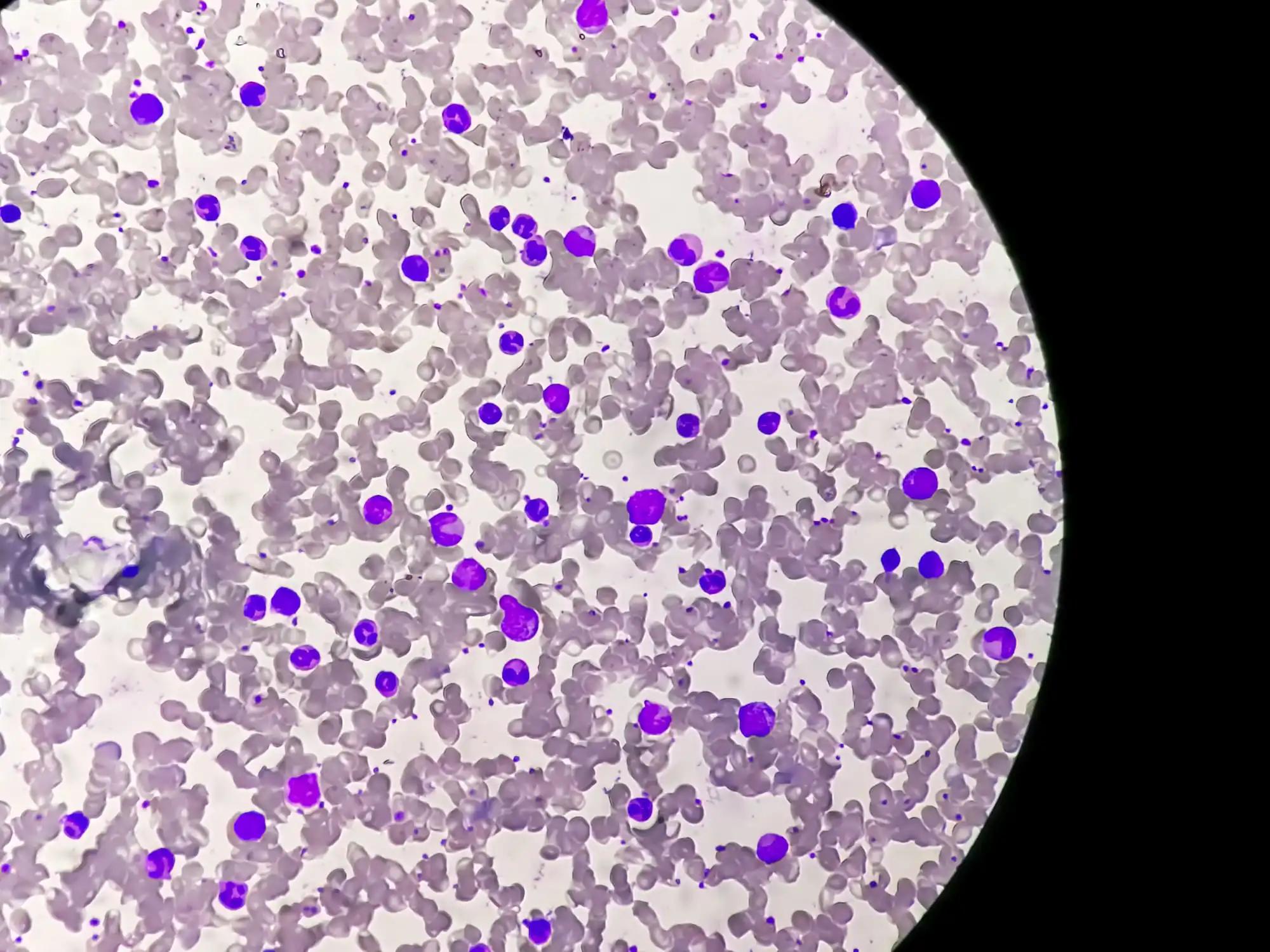KEY TAKEAWAYS
- The phase III ASCEMBL study assessed the performance of asciminib over bosutinib in patients with CML-CP previously treated with ≥2 TKIs.
- The study suggested that asciminib exhibited superior effectiveness and improved safety and tolerance compared to bosutinib in patients previously treated with at least 2 TKIs for CML-CP.
In the ASCEMBL trial, adults with chronic myeloid leukemia in chronic phase (CML-CP) who had previously undergone treatment with at least two tyrosine kinase inhibitors (TKIs) were randomly assigned in a 2:1 ratio to receive either asciminib at a dose of 40 mg twice daily or bosutinib at 500 mg once daily.
Among the 18 patients (pts) treated with asciminib who had a BCR::ABL1IS level exceeding 1% by week 24 and continued on asciminib, the likelihood of achieving a BCR::ABL1IS level of ≤1% (with a 95% confidence interval) was 22.2% (ranging from 6.5% to 43.6%) after one year and 38.9% (ranging from 16.4% to 61.0%) after two years. Of the 56 pts receiving asciminib who did not attain a major molecular response (MMR) by week 24 and continued with asciminib, the probability of achieving MMR (with a 95% confidence interval) was 17.9% (ranging from 9.1% to 29.0%) after one year and 37.9% (ranging from 25.1% to 50.6%) after two years.
Overall, the MMR rates at week 96 were higher with asciminib when compared to bosutinib, irrespective of the last prior TKI used and the reason for discontinuation (either intolerance or resistance). Specifically, the MMR rates were as follows: imatinib, 55.6% vs. 14.3%; nilotinib, 40.9% vs. 35.7%; dasatinib, 37.1% vs. 10.5%; radotinib, 50.0% vs. 0%; and ponatinib, 20.0% vs. 11.8%. In pts resistant to all prior second-generation (2G) TKIs, the MMR at week 96 with asciminib versus bosutinib was 34.3% vs. 7.7% (with one prior 2G TKI) and 35.0% vs. 16.7% (with two or more prior 2G TKIs). The cumulative incidence of MMR by week 96 was higher with asciminib compared to bosutinib, respectively, in pts with baseline BCR::ABL1IS levels ≥10% (28.4% vs. 12.6%) and <10% (62.1% vs. 40.7%), in pts who discontinued their prior TKI due to lack of efficacy (33.2% vs. 9.4%), and across different lines of randomized therapy (third: 45.9% vs. 33.3%; fourth: 40.9% vs. 24.8%).
Responses to asciminib continued to improve over time, and pts who continued taking asciminib beyond week 24 could still achieve MMR at later time points. At week 96, MMR rates were higher with asciminib than with bosutinib, regardless of the last TKI used or the reason for its discontinuation, as well as in pts resistant to all prior 2G TKIs. The efficacy of asciminib following the failure of treatment with 2G TKIs supported its adoption as a new standard of care for pts with CML-CP.
Source: https://clml-soho2023.elsevierdigitaledition.com/340/index.html
Clinical Trial: https://classic.clinicaltrials.gov/ct2/show/NCT03106779
Mauro, M., Hochhaus, A., Hughes, T., Rea, D., Boquimpani, C., Minami, Y., Apperley, J., Garcia-Gutiérrez, V., Kapoor, S., Espurz, N., Dhamal, V., & Cortes, J. (2023). CML-398 Responses With Asciminib Continue to Deepen Over Time in Patients With Chronic Myeloid Leukemia in Chronic Phase (CML-CP) After ≥2 Prior Tyrosine Kinase Inhibitors (TKIs) in the Phase III ASCEMBL Study. Clinical Lymphoma Myeloma and Leukemia, 23, S340. https://doi.org/10.1016/S2152-2650(23)01138-2



